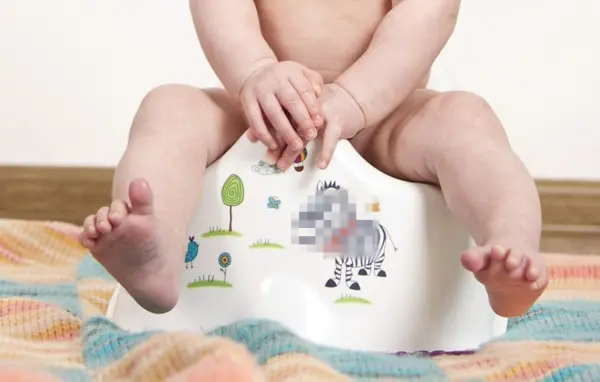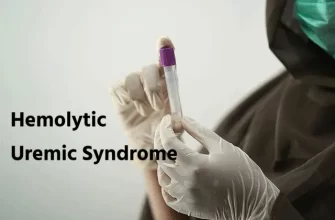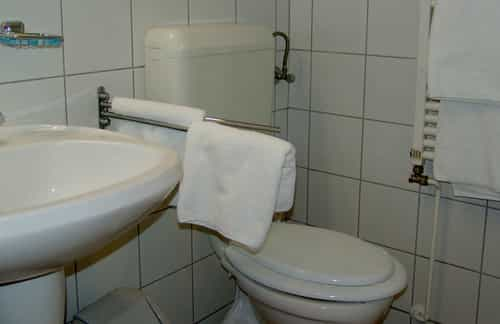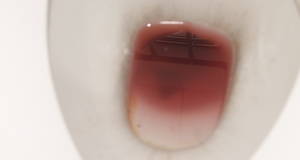Blood in a toddler’s stool refers to the presence of red or black blood in the feces. This can be a worrisome symptom for parents as it may indicate an underlying health issue. Blood in the stool can present in different ways, such as streaks or clots, and may or may not be accompanied by other symptoms.
Causes Why Baby Poops Blood
Discovering blood in your baby’s diaper can be a harrowing experience for any parent. While it may be alarming, it’s essential to address the situation calmly and seek medical attention promptly. Blood in a baby’s stool, also known as hematochezia, can stem from various reasons. Here are some common causes to be aware of:
- Anal Fissures:
- These tiny tears in the delicate lining of the baby’s anus are a frequent cause of blood in the stool.
- Anal fissures result from passing hard or large stools or vigorous wiping, causing discomfort and bleeding.
- This condition is mostly benign and can often be managed with simple remedies like applying a soothing cream or adjusting the baby’s diet to soften their stool.
- Food Allergies or Sensitivities:
- Certain foods, such as cow’s milk, soy, nuts, or eggs, can trigger an allergic reaction in a baby’s digestive system.
- The intestine’s reaction to allergens can lead to inflammation and blood in the stool.
- If you suspect a food allergy or sensitivity, consult with a pediatrician who can guide you through an elimination diet or propose appropriate alternatives.
- Gastrointestinal Infections:
- Viral or bacterial infections in the gastrointestinal tract can result in rectal bleeding.
- These infections often accompany symptoms like diarrhea, vomiting, abdominal pain, and fever.
- Adequate hydration and medical intervention are crucial to prevent complications. Consulting a doctor is vital to determine the appropriate treatment.
- Intestinal Polyps:
- Although rare in infants, intestinal polyps are benign growths that can cause blood to appear in the stool.
- Polyps can sometimes be inherited or may develop due to an underlying medical condition.
- Surgical removal is often necessary, and consulting a pediatric gastroenterologist will help determine the best course of action.
- Meckel’s Diverticulum:
- This congenital condition involves a small pouch in the intestinal wall, which can lead to rectal bleeding in babies.
- Symptoms may also include abdominal pain, vomiting, and changes in stool color.
- Prompt medical evaluation is essential to diagnose and treat Meckel’s diverticulum effectively.
- Inflammatory Bowel Disease (IBD):
- Although rare in infants, IBD can cause blood in the stool due to chronic inflammation in the digestive tract.
- Includes conditions such as Crohn’s disease and ulcerative colitis.
- Pediatric gastroenterologists specialize in diagnosing and treating IBD.
Other Symptoms to Pay Attention
When it comes to blood in a toddler’s stool, it is important to be aware of other accompanying symptoms that could indicate a more serious underlying condition. While the presence of blood in the stool is concerning on its own, the presence of certain symptoms should not be ignored. These symptoms include:
- Abdominal pain: If your toddler experiences persistent or severe abdominal pain along with blood in their stool, it may be a sign of a more significant issue such as an infection or inflammation in the digestive tract.
- Diarrhea: Frequent loose or watery stools that are accompanied by blood may suggest an infection or gastrointestinal issue that requires medical attention.
- Vomiting: If your toddler is vomiting along with blood in their stool, it could indicate a more serious condition such as an intestinal blockage or gastrointestinal bleeding.
- Foul odor: If your toddler’s stool has a strong, foul odor in addition to blood, it may suggest a gastrointestinal infection or malabsorption issue.
- Change in behavior: If your toddler appears lethargic, irritable, or has a noticeable change in appetite or weight, it could be a sign of an underlying condition that requires medical evaluation.
Diagnosis
To diagnose the cause of blood in a toddler’s stool, healthcare professionals will typically perform a thorough evaluation. This evaluation may involve the following steps:
- Medical history: The doctor will ask about the child’s symptoms, diet, recent illnesses, and any medications or supplements they are taking. This information can provide important clues regarding the potential cause of the blood in the stool.
- Physical examination: The doctor will perform a physical examination to check for any signs of pain, tenderness, or abnormalities in the abdomen. They may also perform a rectal examination to assess the rectum and anus for any signs of bleeding or inflammation.
- Stool analysis: A stool sample may be collected and examined for the presence of blood, mucus, or pathogens. Stool analysis helps identify infections, parasites, or other underlying conditions that may be causing the blood in the stool.
- Imaging tests: In certain cases, imaging tests such as ultrasound, X-ray, or endoscopy may be recommended to visualize the gastrointestinal tract and identify any structural abnormalities or sources of bleeding.
- Laboratory tests: Blood tests may be conducted to assess the child’s overall health and to check for any abnormalities or signs of inflammation in the body.
Treatment Methods
Treatment methods for blood in a toddler’s stool vary depending on the underlying cause. It is crucial to consult with a healthcare professional for an accurate diagnosis and appropriate treatment plan. Here are some common treatment methods:
- Antibiotics: If a bacterial infection is causing blood in the stool, antibiotics may be prescribed to eliminate the infection and relieve symptoms.
- Probiotics: In some cases, probiotics may be recommended to restore the balance of bacteria in the gut and improve digestion, reducing the occurrence of blood in the stool.
- Dietary changes: Adjusting the toddler’s diet may be necessary if a food allergy or intolerance is causing blood in the stool. This may involve eliminating certain foods, such as dairy or gluten, and introducing hypoallergenic formulas or specialized diets.
- Medications: Medications to reduce inflammation in the digestive tract may be prescribed to treat conditions such as inflammatory bowel disease (IBD) or Crohn’s disease.
- Surgery: In rare cases where structural abnormalities or serious conditions are causing blood in the stool, surgical intervention may be necessary.
It is essential to follow the healthcare professional’s instructions and monitor the toddler’s symptoms closely. Regular follow-up appointments may be recommended to assess the effectiveness of the treatment and make any necessary adjustments.
Prevention
Preventing blood in a toddler’s stool involves a combination of maintaining a healthy lifestyle and being aware of potential risks. Here are some key prevention strategies:
- Proper nutrition: Ensure your toddler is receiving a balanced diet that includes adequate fiber and fluids to promote regular bowel movements. Avoid giving them excessive amounts of sugary or processed foods that can contribute to digestive issues.
- Hygiene: Teach your toddler proper handwashing techniques to reduce the risk of infections that can cause blood in the stool. Cleanliness is especially important before eating and after using the toilet.
- Food allergies: If your toddler has known food allergies, take precautions to avoid those allergens. Be diligent about reading food labels and informing caregivers or schools about your child’s allergies.
- Vaccinations: Stay up to date with your toddler’s recommended immunizations. Vaccinations, such as those against rotavirus, can help prevent certain infections that may lead to blood in the stool.
- Regular check-ups: Schedule routine visits with your pediatrician to monitor your toddler’s overall health and development. Regular check-ups can help detect any potential issues and allow for early intervention if needed.
By incorporating these preventive measures into your toddler’s daily routine, you can help reduce the risk of blood in their stool and promote their overall well-being. Remember to consult with your healthcare professional for personalized advice and guidance.
When to Seek Urgent Medical Attention
If you notice blood in your toddler’s stool, it is important to know when it is necessary to seek urgent medical attention. While minor cases of blood in the stool may be harmless, there are situations that require immediate medical evaluation. Here are some signs that indicate you should seek urgent medical attention for your toddler:
- Severe or persistent bleeding: If the amount of blood in the stool is excessive or if the bleeding persists for more than a few days, it may be a cause for concern. Seek medical attention as soon as possible.
- Excessive vomiting or diarrhea: If your toddler is experiencing severe vomiting or diarrhea along with blood in their stool, it could be a sign of a more serious condition that requires prompt medical evaluation.
- Abdominal pain: If your toddler is experiencing severe abdominal pain along with blood in their stool, it may indicate a more serious underlying condition that needs immediate medical attention.
- Change in behavior or appetite: If your toddler is showing signs of being lethargic, unusually irritable, or has a decreased appetite along with blood in their stool, it may be an indication of a more serious underlying issue that requires urgent medical attention.
- Signs of dehydration: If your toddler is showing signs of dehydration, such as dry mouth, decreased urine output, or sunken eyes, along with blood in their stool, seek immediate medical attention.
Remember, it is always better to err on the side of caution when it comes to your toddler’s health. If you are unsure or concerned about the presence of blood in their stool, don’t hesitate to contact your healthcare provider for guidance and appropriate intervention.









